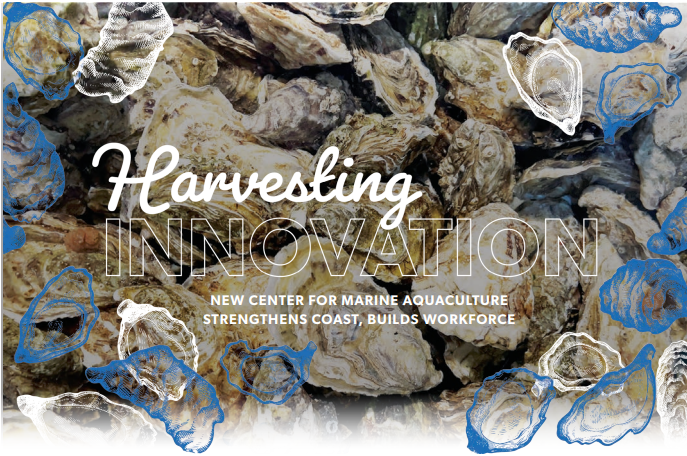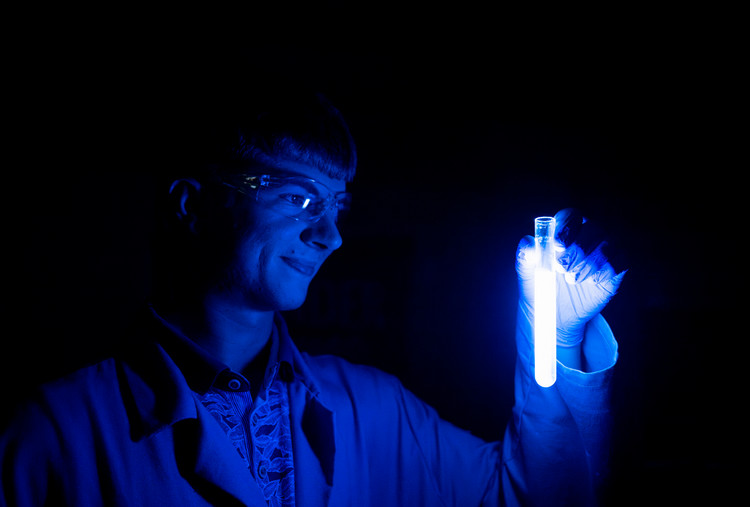Island University Biology Professor Awarded National Science Foundation Grant as Part of Arctic Research Project
CORPUS CHRISTI, Texas – Very little is known about how the Arctic biome – a distinctly cold biological community formed in response to a shared physical climate – is responding to climate change.
However, a new collaborative research project led by a pair of researchers at the University of Arizona that includes team members from Duke University, North Carolina University and Texas A&M University-Corpus Christi has received funding by the National Science Foundation’s Division of Environmental Biology to study biodiversity in Alaska and the Canadian Arctic regions.
Dr. Barnabas Daru, Texas A&M-Corpus Christi Assistant Professor of Biology and Curator of the Ruth O’Brien Herbarium, has received an NSF grant for nearly $144,000 as part of the Collaborative Research: Leveraging Historical Collections and New Surveys to Characterize Foundational Shifts in Vital Symbioses in the Threatened Arctic project.
Projects leads Drs. Betsy Arnold and Jana U’Ren received nearly $388,000 in grant funds, Dr. Ignazio Carbone of North Carolina State University received $133,000 and Drs. Francois Lutzoni and Jolanta Miadlikowska of Duke University received more than $321,000 in funding. All total, the project received nearly $986,000 in NSF grant funds; the project is funded through fall 2023.
“This project is all about exploring biotic interactions in the threatened Arctic biome,” Daru said. “We will study the interaction of plants and their microbes to see whether that interaction would have changed over the course of time, and because it’s very hard to have a series of activities that would go back in time, we thought herbarium specimens can give us a clue into how organisms might have changed over time.
Daru said the origins of his role in the project stem back to his post-doctoral research days at Harvard University in 2016. While looking for ways to utilize herbarium collections for research and researching fungal endophytes, Daru met Arnold, a leading expert in fungal endophyte biology. The pair collaborated on projects and the effort led to a paper that was published in the journal Philosophical Transactions of the Royal Society B.
“That publication was a sort of proof-of-concept on whether that approach in fungal endophyte biology using herbarium records actually works – so I am bringing in the herbarium side of things,” Daru said.
Daru said the team will travel to locations in Alaska and the Canadian Arctic to collect specimens of plants and lichens to compare to samples kept in herbaria in the arctic biome.
“We want to explore the possibility of looking at herbarium specimens of plants that have been sampled along the arctic biomes and then compare that by going out to the locations where they were collected and actually collecting plants in real time to see how things have changed over the course of time,” he said.
Most of the herbarium work will be done by Daru’s team at the Island University, which means the specimens will be subsequently added to the collections of the herbarium specimens here on campus following processing. Daru said he is most excited about the role of herbaria in the project because it’s something that most researchers haven’t thought about before.
“We have these enormous resources archived in herbaria and museums that can actually inform us by giving us a window into the past, and so it allows us to explore new avenues of research,” Daru said.
In addition, the NSF grant provides support for a doctoral student who will assist in the project while also using some of these collections for research.
First-year doctoral student Paul Markley will start work under Daru in spring 2021. The Fountain Valley, Calif., native is pursuing a Ph.D. in Marine Biology with a focus on plant microbiomes; he earned a Bachelor of Science in Plant Biology with a specialization in plant pathology from the University of California, Riverside.
“I’m looking forward to coming to Corpus Christi and contributing to this project under Dr. Daru,” Markley said.










